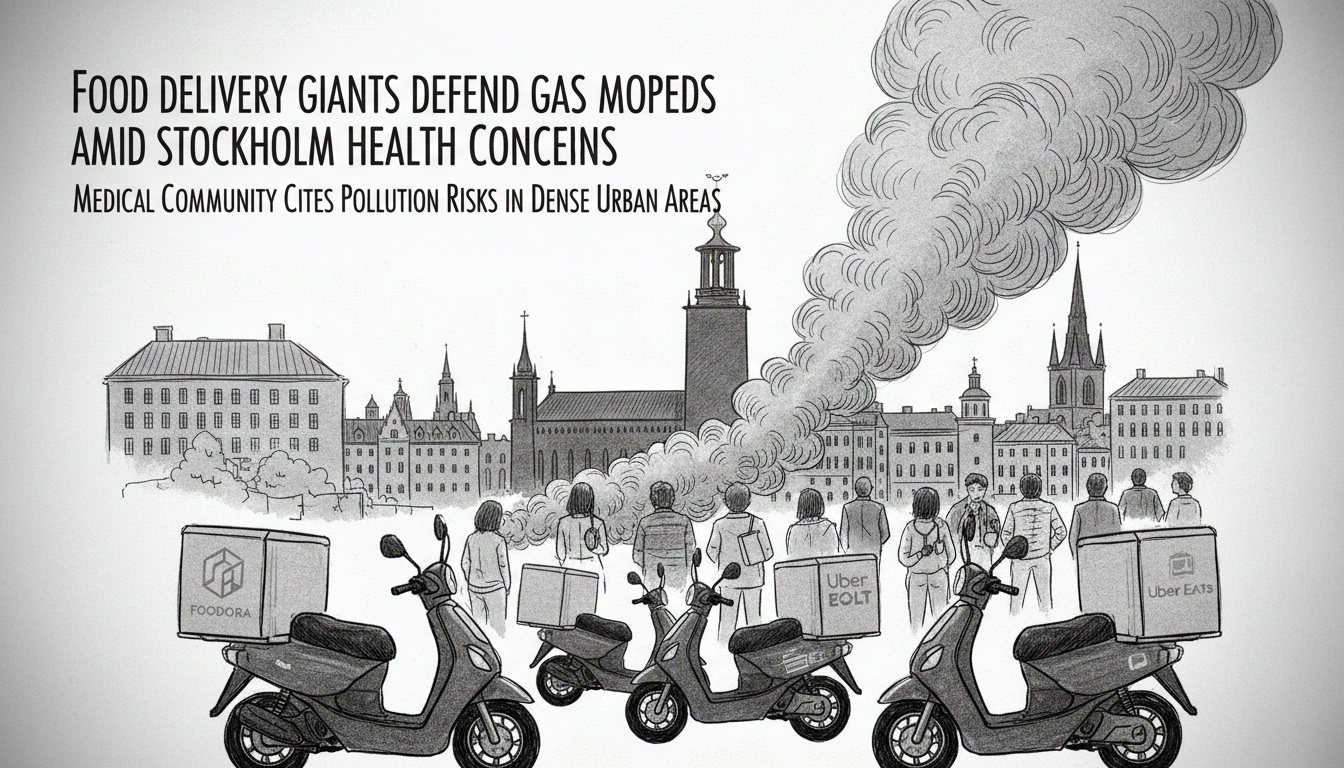Major food delivery companies face mounting pressure over gas-powered mopeds in Stockholm. Foodora, Wolt and Uber Eats continue operating hundreds of fossil-fueled vehicles despite health warnings. Medical professionals at Karolinska Hospital identified these mopeds as public health hazards.
Gregory Palega, a specialist physician in internal medicine, spearheads the campaign against delivery mopeds. He argues they create dangerous pollution levels across Stockholm neighborhoods. The city's cycling paths see constant traffic from these delivery vehicles. Residents report daily exposure to exhaust fumes during peak delivery hours.
All three major delivery firms claim they are transitioning to electric alternatives. Their public statements emphasize gradual phase-out plans for combustion engines. Yet their fleets remain dominated by gasoline-powered vehicles. Company representatives cite cost differentials as the primary barrier.
Electric mopeds currently carry higher upfront investment costs. Operational expenses also remain elevated compared to traditional options. Delivery companies operate on thin margins in competitive Nordic markets. This creates financial disincentives for rapid fleet electrification.
Stockholm's dense urban environment compounds the pollution problem. Narrow streets in districts like Södermalm trap vehicle emissions. This creates concentrated pollution zones affecting residents and workers. The city's environmental targets conflict with current delivery practices.
Sweden's ambitious climate goals require rapid transportation electrification. The government aims for fossil-free vehicle fleets within coming years. Food delivery services represent a visible obstacle to these targets. Their daily operations directly impact urban air quality metrics.
International readers should understand Stockholm's unique geographic challenges. The city's archipelago location affects air circulation patterns. Pollution tends to linger longer than in more open urban environments. This magnifies the health impact of delivery vehicle emissions.
The situation reflects broader tensions in Nordic business innovation. Startups often prioritize growth over environmental considerations. Venture capital backing typically emphasizes scalability and market penetration. Sustainable operations sometimes become secondary concerns during rapid expansion phases.
Stockholm's position as a Nordic innovation hub creates particular expectations. The city markets itself as a leader in green technology and sustainable urban living. This reputation suffers when visible pollution sources operate unchecked. The delivery moped controversy highlights this contradiction.
What explains the gap between corporate statements and operational reality? Company representatives point to practical business constraints. Electric vehicle infrastructure remains underdeveloped in some Stockholm areas. Charging logistics create operational complexities for delivery networks.
Medical professionals counter that public health should outweigh convenience factors. They note respiratory conditions worsening among city residents. Children and elderly populations face particular vulnerability. The economic costs of healthcare impacts likely outweigh fleet transition expenses.
This situation mirrors challenges faced by other Nordic startups scaling rapidly. Sustainable business practices sometimes lag behind growth metrics. The Stockholm case offers lessons for other cities balancing innovation and public welfare. Resolution will require cooperation between companies, regulators and community stakeholders.
Swedish venture capital firms increasingly consider environmental factors in funding decisions. This creates potential leverage points for accelerating delivery fleet transitions. Green technology startups see opportunities in developing better electric delivery vehicles. The current controversy may drive innovation in sustainable urban logistics.
Stockholm's business districts face crucial decisions about urban transportation futures. Östermalm and Södermalm represent test cases for balancing commerce and community health. The outcome will influence similar debates across Nordic urban centers.

